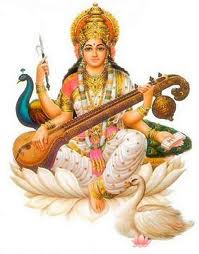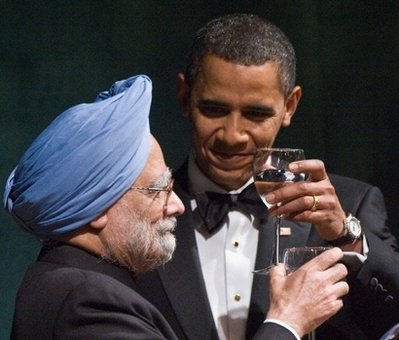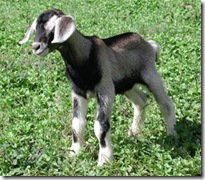 Saraswati puja is a major Bengali religious and cultural festival, especially for the Bengali youth. Although Saraswati puja celebrates knowledge, learning and the fine arts, but it also had a romantic touch to it. The spring time weather, the mild warmth of sunshine, the red Krishnachura and Palash blooming all around – it is the perfect time for romance and Saraswati Puja. In this country (especially in the north east), Saraswati Puja is celebrated in the peak of winter – and just like the Goddess, the landscape around covers itself in white. We would have to cover our nice festive dresses in heavy winter clothing and trudge through snow, ice and slush to visit our revered Goddess of learning. But we the expatriates, many of whom are indebted to Maa Saraswati for her blessings, carry the warmth of spring in our heart. Just as we enter the Puja venue, we feel transported back to those days when we used to go around door to door to collect contributions for our club Puja, building and decorating the pandals, waking nights to decorate the venue and have a great time. We also had several rules that needed to be followed – like, we couldn’t eat “Kool” (the sweet and sour berry), no studying on the day of the Puja, and after the Puja write Saraswati’s name on the “Bel” leaves. No such restrictions need to be followed here, but sometimes we feel a small tinge when we see our kids missing out the fun. Continue reading
Saraswati puja is a major Bengali religious and cultural festival, especially for the Bengali youth. Although Saraswati puja celebrates knowledge, learning and the fine arts, but it also had a romantic touch to it. The spring time weather, the mild warmth of sunshine, the red Krishnachura and Palash blooming all around – it is the perfect time for romance and Saraswati Puja. In this country (especially in the north east), Saraswati Puja is celebrated in the peak of winter – and just like the Goddess, the landscape around covers itself in white. We would have to cover our nice festive dresses in heavy winter clothing and trudge through snow, ice and slush to visit our revered Goddess of learning. But we the expatriates, many of whom are indebted to Maa Saraswati for her blessings, carry the warmth of spring in our heart. Just as we enter the Puja venue, we feel transported back to those days when we used to go around door to door to collect contributions for our club Puja, building and decorating the pandals, waking nights to decorate the venue and have a great time. We also had several rules that needed to be followed – like, we couldn’t eat “Kool” (the sweet and sour berry), no studying on the day of the Puja, and after the Puja write Saraswati’s name on the “Bel” leaves. No such restrictions need to be followed here, but sometimes we feel a small tinge when we see our kids missing out the fun. Continue reading
Tag Archives: Add new tag
Durga Puja 2010 : New Jersey Style
The time of the year is here again. The sky is blue with patches of white clouds floating lazily and the weather is cooling down. Durga Puja is here again in New Jersey. The local Bengali associations are gearing up to welcome Ma Durga with the usual pomp and cultural extravaganza, and let me share with you some information about the festivities that has come to my notice.
Like previous years, Durga Puja festival in New Jersey will be heralded in by the live Mahishashura Mardini (Mahalaya) performance at the Ananda Mandir on October 10th at 5.00am in the morning. I have been a regular attendee at this event, and I can promise you that if you can take that bold step of getting up from bed that early and drive down to Ananda Mandir, you’ll have an experience that you will never regret. Continue reading
“Ekti Gnaye Thaki” : A Preview
Simanti Dasgupta
 Many of us will intuitively link the title of the play to Rabindranath Tagore’s well know poem, “Ek Gnaye” and correctly so. Sambhu Mitra and Tripti Mitra particularly immortalized the poem in their rendition of it in Bidhayak Bhattacharya’s celebrated radio play, “Tahar Naamti Ranjana”. “Ekti Gnaye Thaki”, written and directed by Sudipta Bhawmik, is the story of a sister, Ranjana and her brother, Rajat, reuniting after fourteen years. Rajat immigrates to the US with his family after Ranjana sponsors their green cards. The reunion is marked by its usual excitement followed by nostalgia for their “gnya” they left both behind. Rajat becomes a critical link for Ranjana to relive her past, while Ranjana helps him come to terms with his decision to abandon his familiar world in Gobindapur. Ranjana is also ill and Rajat’s presence offers a long-awaited emollient. As the brother and the sister often slip into the past, the rest of the characters are excited at the prospects of their future in the US, especially Rajat’s son, Rajib.
Many of us will intuitively link the title of the play to Rabindranath Tagore’s well know poem, “Ek Gnaye” and correctly so. Sambhu Mitra and Tripti Mitra particularly immortalized the poem in their rendition of it in Bidhayak Bhattacharya’s celebrated radio play, “Tahar Naamti Ranjana”. “Ekti Gnaye Thaki”, written and directed by Sudipta Bhawmik, is the story of a sister, Ranjana and her brother, Rajat, reuniting after fourteen years. Rajat immigrates to the US with his family after Ranjana sponsors their green cards. The reunion is marked by its usual excitement followed by nostalgia for their “gnya” they left both behind. Rajat becomes a critical link for Ranjana to relive her past, while Ranjana helps him come to terms with his decision to abandon his familiar world in Gobindapur. Ranjana is also ill and Rajat’s presence offers a long-awaited emollient. As the brother and the sister often slip into the past, the rest of the characters are excited at the prospects of their future in the US, especially Rajat’s son, Rajib.
The Green State Dinner
 On November 24th, 2009, President Barack Obama hosted the first state dinner, since his inauguration, in honor of Dr. Manmohan Singh, the honorable Prime Minister of India and his wife Mrs. Gursharan Kaur. State dinners honoring foreign head of states are huge events and are attended by members of the top echelon of the society. The official White House fact sheet says:
On November 24th, 2009, President Barack Obama hosted the first state dinner, since his inauguration, in honor of Dr. Manmohan Singh, the honorable Prime Minister of India and his wife Mrs. Gursharan Kaur. State dinners honoring foreign head of states are huge events and are attended by members of the top echelon of the society. The official White House fact sheet says:
The first State Dinner for a foreign head of state was held by President and Mrs. Ulysses S. Grant on December 12, 1874 for King David Kalakaua of Hawaii.
Since that first dinner, many traditions have been added to State and Official Visits – yet the common theme of forging friendships, exchanging knowledge and building bridges that last for years to come remain unchanged.
As the world’s two largest democracies, India and the United States share common ideals and strengths, and the United States and India are working together to address a number of global challenges of the 21st Century—from security to the economy to climate change to the health and education of our people. Continue reading
The Health Care Debate
I have been trying to avoid writing about the current health care issue on this blog. The key reason being that if I start writing I won’t be able to stop. I have been discussing this issue with my friends on my facebook page and the discussions often became quite passionate and sometimes quite heated too. The rumors, hear-says, myths and speculations on the healthcare bill have risen to a level that I doubt if ever happened before in American social and political life. Multiple bills have been floating in the Capitol and today Senator Baucus unveiled the so-called bipartisan bill (which apparently only one Republican Sen. Olympia Snowe is likely to support) which has no option for a public-option, requires families to contribute 13% of their income for health insurance premiums and imposes fines ($3800 per family) on those who do not purchase insurance. The bill does however impose some restrictions on insurance companies to prevent them from rejecting people with pre-existing conditions or from increasing the rates for people with serious illnesses. This bill, if accepted, would cost $856 billion over 10 year time.
Goat and the Bengali Intelligentsia
 The intelligentsia (as defined by Wikipedia) is a social class of people engaged in complex mental and creative labor directed to the development and dissemination of culture, encompassing intellectuals and social groups close to them. You can very well attribute this term to the Bengali society who fits this definition quite well. But what does a timid and herbivorous (although Bengalis think goats to be omnivorous – chhagole ki na khay) mammal like goat got to do with this elite group of people? The answer to this is well known to all of us – Bengalis love goat meat. Although in other parts of the World, goat milk and milk products (cheese) are also extremely popular, but we the Bengalis don’t care much about the milk. It is the meat that is most important to us – the ultimate food in any Bengali plate. Historically, goat meat is the only kind of meat that Bengalis (especially the Hindu Bengalis) ate. Goats were the most popular offerings to Goddess Kali and Durga – and the meat then cooked in a recipe void of any garlic or onions and hence termed as “vegetarian meat”.
The intelligentsia (as defined by Wikipedia) is a social class of people engaged in complex mental and creative labor directed to the development and dissemination of culture, encompassing intellectuals and social groups close to them. You can very well attribute this term to the Bengali society who fits this definition quite well. But what does a timid and herbivorous (although Bengalis think goats to be omnivorous – chhagole ki na khay) mammal like goat got to do with this elite group of people? The answer to this is well known to all of us – Bengalis love goat meat. Although in other parts of the World, goat milk and milk products (cheese) are also extremely popular, but we the Bengalis don’t care much about the milk. It is the meat that is most important to us – the ultimate food in any Bengali plate. Historically, goat meat is the only kind of meat that Bengalis (especially the Hindu Bengalis) ate. Goats were the most popular offerings to Goddess Kali and Durga – and the meat then cooked in a recipe void of any garlic or onions and hence termed as “vegetarian meat”.
